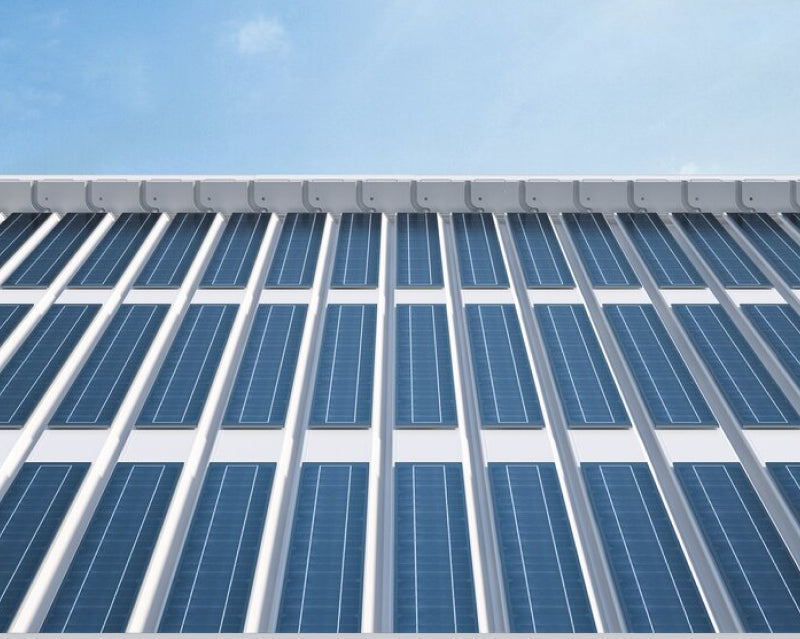In an age where sustainability is at the forefront of modern living, homeowners are increasingly seeking ways to make their outdoor spaces more environmentally friendly. Creating a sustainable garden is not just about planting trees and reducing waste, it’s also about making conscious choices regarding the structures you incorporate into your space. Verandas and pergolas offer a practical and stylish solution, providing not just shelter and comfort but also opportunities for sustainable living.
The role of verandas and pergolas in sustainability
A veranda or pergola is more than an aesthetic feature; it plays a key role in enhancing the efficiency and environmental impact of your outdoor space. By integrating eco-conscious elements such as rainwater harvesting and solar-powered roofs, these structures can actively contribute to a more sustainable lifestyle while reducing reliance on traditional energy sources.
1. Rainwater harvesting: Making every drop count
One of the simplest yet most effective ways to boost sustainability in your garden is by harvesting rainwater. A veranda or pergola with a well-designed roof can be utilised to direct rainwater into a collection system, such as a water butt or underground storage tank.
Benefits of rainwater harvesting:
- Reduced water consumption: Using harvested rainwater for irrigation means less reliance on mains water, reducing utility bills and conserving a valuable resource.
- Healthier plants: Rainwater is free from chemicals such as chlorine, making it a more natural and beneficial choice for garden watering.
- Eco-friendly drainage: Instead of letting excess rainwater run-off into drains, harvesting helps prevent soil erosion and reduces strain on local water systems.
By integrating guttering and downpipes from the roof of your pergola or veranda into a rainwater storage solution, you can easily make the most of this free and natural resource.
2. Solar-powered structures: A renewable energy solution
With the increasing need to reduce carbon footprints, incorporating solar energy into outdoor structures is a smart investment. Pergolas and verandas with solar panels integrated into their roofing provide a dual-purpose solution: shade and sustainable power generation.
Advantages of solar-powered outdoor structures:
- Lower energy bills: Generating electricity from solar panels can help power garden lights, outdoor appliances, and even parts of your home, cutting down on utility costs.
- Reduced carbon footprint: By utilising renewable energy, you decrease reliance on fossil fuels, contributing to a cleaner environment.
- Year-round benefits: Solar panels work in all seasons, providing consistent energy generation regardless of the weather.
Modern solar pergolas are designed to seamlessly integrate photovoltaic panels without compromising aesthetics, making them an attractive and functional addition to any garden.
3. Natural cooling and shading for energy efficiency
Another overlooked sustainability benefit of pergolas and verandas is their natural ability to regulate temperatures in your home and outdoor space. By providing shade, these structures reduce the need for energy-intensive cooling systems such as fans and air conditioning, especially during the summer months.
- Lower indoor temperatures: A veranda or pergola placed strategically can help block direct sunlight from entering your home, keeping interiors cooler.
- Comfortable outdoor spaces: By creating shaded areas, pergolas encourage more time spent outdoors, reducing the need for indoor energy consumption.
4. Sustainable materials for eco-conscious living
Choosing the right materials for your veranda or pergola also plays a significant role in sustainability.
- Reclaimed or FSC-certified wood: Opting for responsibly sourced timber reduces environmental impact and supports sustainable forestry practices.
- Recycled aluminium: Lightweight, durable, and recyclable, aluminium is a great low-maintenance material with a long lifespan.
- Green roof integration: Some modern pergolas support green roofing, where plants are grown to improve insulation, support biodiversity, and reduce air pollution.
Final thoughts: A smart and sustainable investment
A veranda or pergola is no longer just a garden luxury, it is an investment in a more sustainable and energy-efficient lifestyle. By incorporating rainwater harvesting systems, solar-powered roofing, and sustainable materials, these structures offer long-term benefits that align with eco-friendly living.
At Outside Structures, we offer innovative, sustainable pergolas and verandas designed to reduce environmental impact while enhancing outdoor spaces. If you’re looking to make your garden more sustainable, our expert team can help you find the perfect solution.
Take the next step toward sustainable outdoor living and create a space that benefits both you and the planet!

